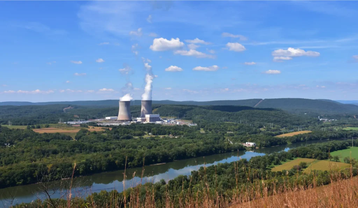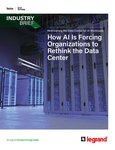Willie Phillips, one of the five commissioners of the US Federal Energy Regulatory Commission (FERC), says the commission must facilitate, not hinder, the growth of the data center sector in the US.
Phillips released a statement on colocation issues facing the data center sector following FERC's unanimous vote to launch a review of issues associated with the co-location of large loads, such as artificial intelligence (AI) enabled data centers, at generating facilities in the PJM Interconnection region.
In the statement, Phillips reaffirmed his argument that the rejected interconnection service agreement (ISA), which would have supported an expanded colocated load at an Amazon Web Services (AWS) data center connected to the 2.5GW Susquehanna nuclear power station in Pennsylvania, should have been approved.
The proposal aimed to revise an ISA involving PJM, the regional grid operator, Susquehanna Nuclear, which owns the power plant, and transmission owner PPL Corp. The amendment would boost the data center's shared power demand from 300MW to 480MW.
FERC initially accepted a PJM-filed ISA in 2015, amended in February 2023 to add a further 150MW of colocated load. Following Talen Energy's sale of the 960MW Cumulus data center to AWS, PJM submitted a further amendment in June, increasing the load to 480MW.
The ISA was ultimately rejected by FERC in a two-to-one vote, with Phillips the dissenting voice. He argued that PJM Interconnection provided sufficient justification for allowing an increase in co-located load without necessitating transmission upgrades.
Phillips previously described the ruling as “a step backward for both electric reliability and national security.”
The Commissioner also contended that the order presented a “novel legal issue” warranting approval while also emphasizing that such approval would not have precluded future Commission flexibility.
In turn, Phillips highlighted the underlying issues that FERC must “address thoughtfully and comprehensively to accommodate what will be a host of co-location requests that are headed our way, including jurisdiction, wholesale grid services, reliability, and resource adequacy.”
He said that the upcoming review will address these questions, raised in the claim brought forward by US utility Exelon in opposition to the ISA.
Last month, Susquehanna Nuclear filed a petition in the Fifth Circuit court seeking a review of the ISA.
Finally, Phillips drew historical parallels to the Industrial Revolution, highlighting the strategic importance of data centers, AI, and information technology infrastructure. He advocated for regulatory efficiency and swift action to maintain the US’ competitive edge, suggesting that the Commission should facilitate, rather than hinder, the growth of these industries.







